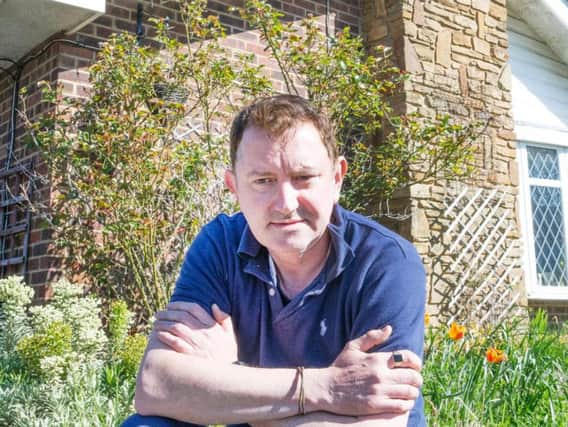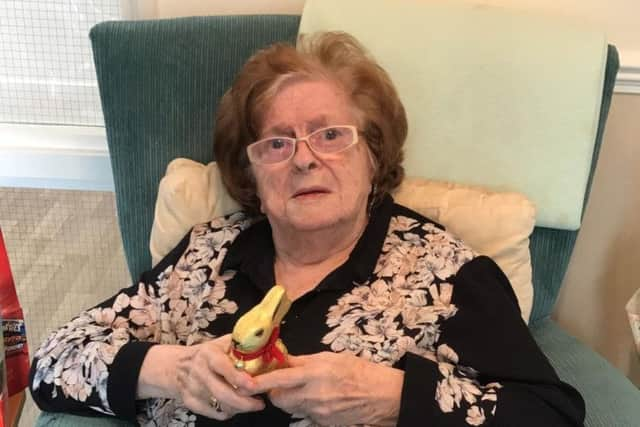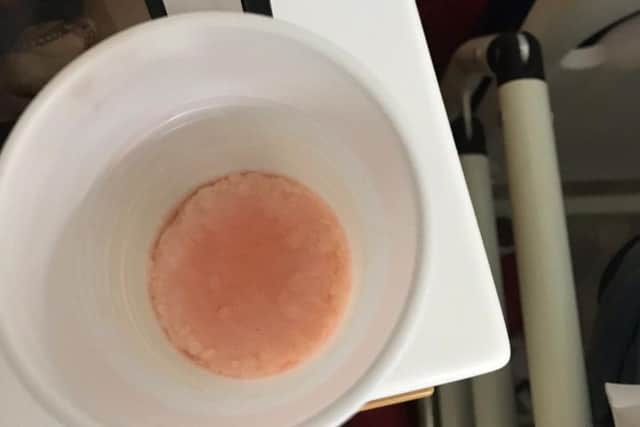Daventry man says mother's death could have been avoided had hospital staff listened to him


Ciaran Cranfield's mother Phyllis was first admitted to the hospital in September after a suspected stroke, and UTIs were a known recurrent affliction of hers.
After she was moved to a different ward, 48-year-old Mr Cranfield noticed something different about his mother, and told doctors he was concerned that she might have contracted another UTI, just as she had in the past.
Advertisement
Hide AdAdvertisement
Hide Ad"For the first couple of days she was fine, but then I noticed her behaviour changed," said Mr Cranfield.


“I just wasn’t listened to."
"All I want is for this not to happen again," added Mr Cranfield, who said he was not after any confrontation.
He has since submitted an official complaint to NGH which is currently being investigated.
A spokeswoman for Northampton General Hospital said: “We send our deepest sympathies to Mr Cranfield at this distressing time for him.
Advertisement
Hide AdAdvertisement
Hide Ad

"I can confirm that Mr Cranfield has been in touch with our complaints department to outline his concerns and we welcome the opportunity to look into them openly and thoroughly.”
Mrs Cranfield, who suffered from dementia, was admitted to Northampton General Hospital on September 7 with a suspected stroke.
She was kept on Eleanor Ward and was later moved to the Allebone Ward after her condition began to improve.
"For the first couple of days she was fine, but then I noticed her behaviour changed," said Mr Cranfield.
Advertisement
Hide AdAdvertisement
Hide Ad

He told staff in mid-September that his mother might be suffering from a (UTI) but said his concerns were not listened to.
On October 10, Mrs Cranfield was deemed medically fit for discharge by the hospital. By that point, the staff had diagnosed a UTI and said it could be treated by a GP.
A urine test was taken and Mrs Cranfield was sent to her care home. Her son was told the sample would be sent to the hospital's laboratory for evaluation so the best course of antibiotics for Mrs Cranfield could be determined.
When Mr Cranfield paid his mother a visit at her Towcester care home the day after her discharge he "took one look at her and I could tell she was not right at all".
Advertisement
Hide AdAdvertisement
Hide Ad

An ambulance was called and she was readmitted to hospital with a UTI and severe dehydration. Mrs Cranfield was placed on the general medicine Creaton ward and put on IV fluids to help rehydrate her.
When Mr Cranfield visited his mother, he discovered her urine test had not been sent to the lab - another issue he has raised in his formal complaint.
Mr Cranfield has also asked the hospital for an explanation as to why his mother was deemed medically fit for discharge but then needed to return to the hospital only a day later. He also said his mother was unable to eat or drink by herself when she was discharged.
He said staff were instructed to ensure Mrs Cranfield was taking fluids and medication in light of her dehydration, and a cup of water with a calcium tablet in it was left on her side table.
Advertisement
Hide AdAdvertisement
Hide AdWhen Mr Cranfield returned to his mother's bedside the mixture had been left untouched and had hardened in the plastic cup (pictured).
Worried that his mother's infection was not clearing, Mr Cranfield spoke to a nurse on the ward in an attempt to explain that because the nature of his mother’s infection - fungal or bacterial - was not yet clear, he believed the correct antibiotics had not been prescribed to her.
“All of this could have been stopped if only I was listened to on the Allebone Ward," said Mr Cranfield.
He believes the staff were quick to say his mother’s stroke and dementia had caused her ill health, and that she had “reached her baseline”.
Advertisement
Hide AdAdvertisement
Hide Ad“I kept saying to [the nurse] this is just not right. I’ve seen these signs before."
By October 29, Mrs Cranfield was unable to keep her food down and was very poorly. Mr Cranfield raised concerns to the doctor who he says told him to let the hospital staff know as the doctor was not dealing with his mother's case. Later that day Mrs Cranfield's heart rate had shot up to 188bpm.
The following day she was rushed to the cardiology Dryden ward. “I can remember people not getting out of the way and the doctors shouting at them to move,” said Mr Cranfield.
Mrs Cranfield was put in a Critical Care Unit but she passed four days later.
Advertisement
Hide AdAdvertisement
Hide AdHe said: “From the hospital’s point of view the staff, in the main, do their utmost but they’re under so much pressure.
"I do feel if an elderly person has care home next to their name they are the first people to be moved.